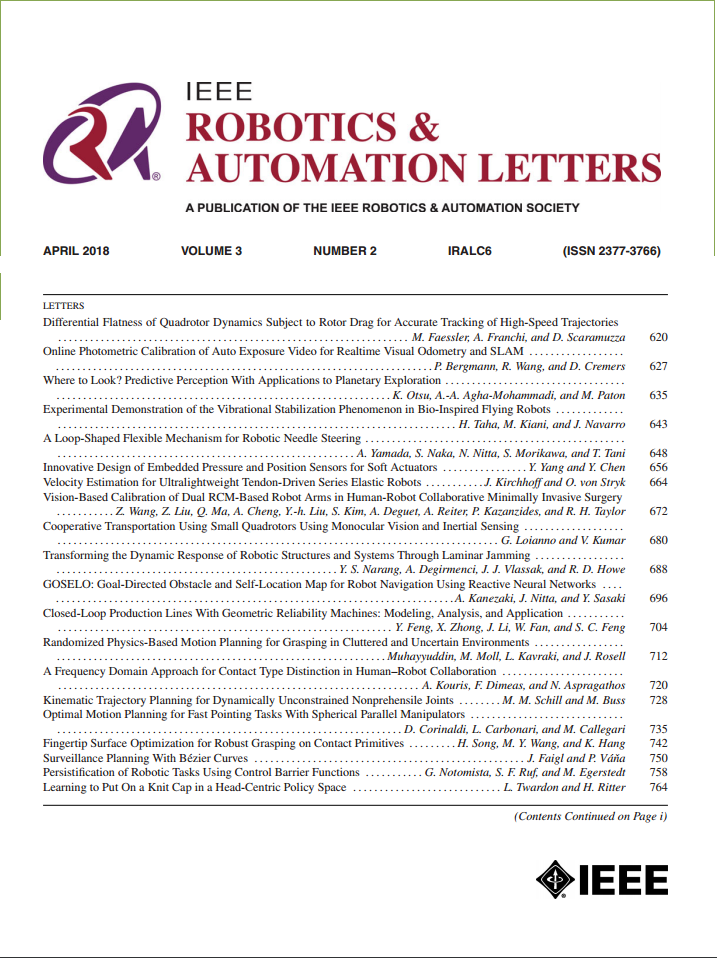LiVeDet:用于在线设备上船舶检测的轻量级密度导向自适应变压器
IF 4.6
2区 计算机科学
Q2 ROBOTICS
引用次数: 0
摘要
基于视觉的在线船舶检测促进了水道监测、运输管理和航行安全的自动化。然而,在一般高性能pc /服务器和嵌入式AI处理器之间的设备上部署存在显着差距。现有的最先进的(SOTA)在线血管检测器缺乏足够的准确性,并且在边缘AI相机上容易出现高延迟,特别是在血管密集和分布多样的情况下。为了解决上述问题,提出了一种具有密度引导自适应变压器(LiVeDet)的新型轻量级框架,用于边缘AI相机,以实现设备上的在线船舶检测。具体来说,设计了一种新的实例感知表示提取器来抑制杂乱的背景噪声并捕获实例感知的内容信息。此外,开发了一种创新的血管分布估计器,通过关注具有不同血管密度的局部区域来指导优越的特征表示学习。此外,提出了一种新的动态区域嵌入方法来整合以多尺度容器为代表的层次特征。建立了一个新的基准,包括来自船舶密集场景的100个高清,高帧率视频序列,以评估船舶检测器在动态水道中普遍存在的挑战性条件下的有效性。对这一具有挑战性的基准进行了广泛的评估,证明了LiVeDet的鲁棒性和效率,在边缘AI相机上实现了32.9 FPS。此外,实际应用验证了所提方法的实用性。本文章由计算机程序翻译,如有差异,请以英文原文为准。
LiVeDet: Lightweight Density-Guided Adaptive Transformer for Online On-Device Vessel Detection
Vision-based online vessel detection boosts the automation of waterways monitoring, transportation management and navigation safety. However, a significant gap exists in on-device deployment between general high-performance PCs/servers and embedded AI processors. Existing state-of-the-art (SOTA) online vessel detectors lack sufficient accuracy and are prone to high latency on the edge AI camera, especially in scenarios with dense vessels and diverse distributions. To solve the above issues, a novel lightweight framework with density-guided adaptive Transformer (LiVeDet) is proposed for the edge AI camera to achieve online on-device vessel detection. Specifically, a new instance-aware representation extractor is designed to suppress cluttered background noise and capture instance-aware content information. Additionally, an innovative vessel distribution estimator is developed to direct superior feature representation learning by focusing on local regions with varying vessel density. Besides, a novel dynamic region embedding is presented to integrate hierarchical features represented by multi-scale vessels. A new benchmark comprising 100 high-definition, high-framerate video sequences from vessel-intensive scenarios is established to evaluate the efficacy of vessel detectors under challenging conditions prevalent in dynamic waterways. Extensive evaluations on this challenging benchmark demonstrate the robustness and efficiency of LiVeDet, achieving 32.9 FPS on the edge AI camera. Furthermore, real-world applications confirm the practicality of the proposed method.
求助全文
通过发布文献求助,成功后即可免费获取论文全文。
去求助
来源期刊

IEEE Robotics and Automation Letters
Computer Science-Computer Science Applications
CiteScore
9.60
自引率
15.40%
发文量
1428
期刊介绍:
The scope of this journal is to publish peer-reviewed articles that provide a timely and concise account of innovative research ideas and application results, reporting significant theoretical findings and application case studies in areas of robotics and automation.
 求助内容:
求助内容: 应助结果提醒方式:
应助结果提醒方式:


